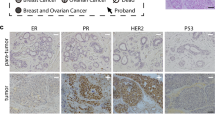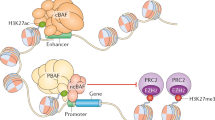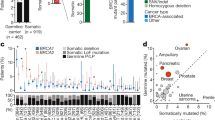Abstract
Checkpoint kinase 2 (CHEK2, Chk2) emerges as an important signal transducer of cellular responses to DNA damage and a candidate tumor suppressor whose defects contribute to molecular pathogenesis of diverse types of human malignancies, both sporadic and hereditary. Here, we briefly outline the molecular properties, regulation and physiological role of CHEK2, and review in more detail its defects that predispose to tumors, with particular emphasis on familial breast cancer. The frequency, penetrance and epidemiological as well as clinical significance of the two most studied breast cancer-predisposing variants of the CHEK2 gene, 1100delC and I157T, are highlighted in more depth, and additional CHEK2 mutations and their cancer relevance are discussed as well. These recent findings are considered also from a broader perspective of CHEK2 as the integral component of the ataxia telangiectasia-mutated-CHEK2-p53 pathway within the genome integrity maintenance system and a barrier against tumor progression. Finally, the potential value of information about the CHEK2 status in family counseling and optimizition of individualized cancer treatment is discussed.
This is a preview of subscription content, access via your institution
Access options
Subscribe to this journal
Receive 50 print issues and online access
$259.00 per year
only $5.18 per issue
Buy this article
- Purchase on Springer Link
- Instant access to full article PDF
Prices may be subject to local taxes which are calculated during checkout
Similar content being viewed by others
References
Ahn J, Urist M, Prives C . (2004). DNA Repair 3: 1039–1047.
Allinen M, Huusko P, Mantyniemi S, Launonen V, Winqvist R . (2001). Br J Cancer 85: 209–212.
Antoniou AC, Pharoah PD, McMullan G, Day NE, Stratton MR, Peto J et al. (2002). Br J Cancer 86: 76–83.
Bachinski LL, Olufemi SE, Zhou X, Wu CC, Yip L, Shete S . (2005). Cancer Res 65: 427–431.
Bartek J, Falck J, Lukas J . (2001). Nat Rev Mol Cell Biol 2: 877–886.
Bartek J, Lukas J . (2003). Cancer Cell 3: 421–429.
Bartek J, Lukas C, Lukas J . (2004). Nat Rev Mol Cell Biol 5: 792–804.
Bartkova J, Guldberg P, Grønbæk K, Koed K, Primdahl H, Møller K et al. (2004). Oncogene 23: 8545–8551.
Bartkova J, Horejsi Z, Koed K, Krämer A, Tort F, Zieger K et al. (2005). Nature 434: 864–870.
Baysal BE, DeLoia JA, Willett-Brozick JE, Goodman MT, Brady MF, Modugno F et al. (2004). Gynecol Oncol 95: 62–69.
Bell DW, Varley JM, Szydlo TE, Kang DH, Wahrer DC, Shannon KE et al. (1999). Science 286: 2528–2531.
Bernstein JL, Teraoka SN, John EM, Andrulis IL, Knight JA, Lapinski R et al. (2006). Cancer Epidemiol Biomar Prev 15: 348–352.
Bogdanova N, Enssen-Dubrowinskaja N, Feshchenko S, Lazjuk GI, Rogov YI, Dammann O et al. (2005). Int J Cancer 116: 263–266.
Bougeard G, Limacher JM, Martin C, Charbonnier F, Killian A, Delattre O et al. (2001). J Med Genet 38: 253–257.
Broeks A, de Witte L, Nooijen A, Huseinovic A, Klijn JG, van Leeuwen FE et al. (2004). Breast Cancer Res Treat 83: 91–93.
Caligo MA, Agata S, Aceto G, Crucianelli R, Manoukian S, Peissel B et al. (2004). Hum Mutat 24: 100–101.
Cybulski C, Gorski B, Huzarski T, Masojc B, Mierzejewski M, Debniak T et al. (2004a). Am J Hum Genet 75: 1131–1135.
Cybulski C, Huzarski T, Gorski B, Masojc B, Mierzejewski M, Debniak T et al. (2004b). Cancer Res 64: 2677–2679.
de Bock GH, Schutte M, Krol-Warmerdam EM, Seynaeve C, Blom J, Brekelmans CT et al. (2004). J Med Genet 41: 731–735.
de Jong MM, Nolte IM, Te Meerman GJ, van der Graaf WT, Mulder MJ, van der Steege G et al. (2005a). Genes Chromosomes Cancer 43: 377–382.
de Jong MM, Nolte IM, Te Meerman GJ, van der Graaf WT, Oosterom E, Bruinenberg M et al. (2005b). Eur J Cancer 41: 1819–1823.
DiTullio RA, Mochan TA, Venere M, Bartkova J, Sehested M, Bartek J et al. (2002). Nat Cell Biol 4: 998–1002.
Dong X, Wang L, Taniguchi K, Wang X, Cunningham JM, McDonnell SK et al. (2003). Am J Hum Genet 72: 270–280.
Dufault MR, Betz B, Wappenschmidt B, Hofmann W, Bandick K, Golla A et al. (2004). Int J Cancer 110: 320–325.
Einarsdottir K, Humphreys K, Bonnard C, Palmgren J, Iles MM, Sjolander A et al. (2006). PLoS Med/Pub Lib Sci 3: e168.
Falck J, Lukas C, Protopopova M, Lukas J, Selivanova G, Bartek J . (2001a). Oncogene 20: 5503–5510.
Falck J, Mailand N, Syljuåsen RG, Bartek J, Lukas J . (2001b). Nature 410: 842–847.
Friedrichsen DM, Malone KE, Doody DR, Daling JR, Ostrander EA . (2004). Breast Cancer Res 6: R629–R635.
Goode EL, Dunning AM, Kuschel B, Healey CS, Day NE, Ponder BA et al. (2002). Cancer Res 62: 3052–3057.
Gorgoulis VG, Vassilliou L-VF, Karakaidos P, Zacharatos P, Kotsinas A, Liloglou T et al. (2005). Nature 434: 907–910.
Hofmann WK, Miller CW, Tsukasaki K, Tavor S, Ikezoe T, Hoelzer D et al. (2001). Leukemia Res 25: 333–338.
Honrado E, Osorio A, Palacios J, Milne RL, Sanchez L, Diez O et al. (2005). J Clin Oncol 23: 7503–7511.
Huzarski T, Cybulski C, Domagala W, Gronwald J, Byrski T, Szwiec M et al. (2005). Breast Cancer Res Treat 90: 187–189.
Ingvarsson S, Sigbjornsdottir BI, Huiping C, Hafsteinsdottir SH, Ragnarsson G, Barkardottir RB et al. (2002). Breast Cancer Res 4: R4.
Isinger A, Bhat M, Borg A, Nilbert M . (2006). BMC Cancer 6: 64.
Johnson N, Fletcher O, Naceur-Lombardelli C, dos Santos Silva I, Ashworth A, Peto J . (2005). Lancet 366: 1554–1557.
Kastan M, Bartek J . (2004). Nature 432: 316–323.
Kato N, Fujimoto H, Yoda A, Oishi I, Matsumura N, Kondo T et al. (2004). Cell Death Different 11 (Suppl 2): S153–S161.
Kilpivaara O, Alhopuro P, Vahteristo P, Aaltonen LA, Nevanlinna H . (2006). J Med Genet 43: e34.
Kilpivaara O, Bartkova J, Eerola H, Syrjakoski K, Vahteristo P, Lukas J et al. (2005). Int J Cancer 113: 575–580.
Kilpivaara O, Laiho P, Aaltonen LA, Nevanlinna H . (2003). J Med Genet 40: e110.
Kilpivaara O, Vahteristo P, Falck J, Syrjakoski K, Eerola H, Easton D et al. (2004). Int J Cancer 111: 543–547.
Kleibl Z, Novotny J, Bezdickova D, Malik R, Kleiblova P, Foretova L et al. (2005). Breast Cancer Res Treat 90: 165–167.
Kuschel B, Auranen A, Gregory CS, Day NE, Easton DF, Ponder BA et al. (2003). Cancer Epidemiol Biomark Prev 12: 809–812.
Latella L, Lukas J, Simone C, Puri PL, Bartek J . (2004). Mol Cell Biol 24: 6350–6361.
Lee SB, Kim SH, Bell DW, Wahrer DC, Schiripo TA, Jorczak MM et al. (2001). Cancer Res 61: 8062–8067.
Li J, Williams BL, Haire LF, Goldberg M, Wilker E, Durocher D et al. (2002). Mol Cell 9: 1045–1054.
Lipton L, Fleischmann C, Sieber OM, Thomas HJ, Hodgson SV, Tomlinson IP et al. (2003). Cancer Lett 200: 149–152.
Lukas C, Bartkova J, Latella L, Falck J, Mailand N, Schroeder T et al. (2001). Cancer Res 61: 4990–4993.
Lukas C, Falck J, Bartkova J, Bartek J, Lukas J . (2003). Nat Cell Biol 5: 255–260.
Lukas J, Lukas C, Bartek J . (2004). DNA Repair 3: 997–1007.
Meijers-Heijboer H, van den Ouweland A, Klijn J, Wasielewski M, de Snoo A, Oldenburg R et al. (2002). Nat Genet 31: 55–59.
Meijers-Heijboer H, Wijnen J, Vasen H, Wasielewski M, Wagner A, Hollestelle A et al. (2003). Am J Hum Genet 72: 1308–1314.
Miller CW, Ikezoe T, Krug U, Hofmann WK, Tavor S, Vegesna V et al. (2002). Genes Chromosomes Cancer 33: 17–21.
Neuhausen S, Dunning A, Steele L, Yakumo K, Hoffman M, Szabo C et al. (2004). Int J Cancer 108: 477–478.
Offit K, Pierce H, Kirchhoff T, Kolachana P, Rapaport B, Gregersen P et al. (2003). BMC Med Genet 4: 1.
Oldenburg RA, Kroeze-Jansema K, Kraan J, Morreau H, Klijn JG, Hoogerbrugge N . (2003). Cancer Res 63: 8153–8157.
Osorio A, Rodriguez-Lopez R, Diez O, de la Hoya M, Ignacio Martinez J, Vega A et al. (2004). Int J Cancer 108: 54–56.
Reddy A, Yuille M, Sullivan A, Repellin C, Bell A, Tidy JA et al. (2002). Br J Cancer 86: 756–760.
Schutte M, Seal S, Barfoot R, Meijers-Heijboer H, Wasielewski M, Evans DG et al. (2003). Am J Hum Genet 72: 1023–1028.
Seppälä EH, Ikonen T, Mononen N, Autio V, Rokman A, Matikainen MP et al. (2003). Br J Cancer 89: 1966–1970.
Shaag A, Walsh T, Renbaum P, Kirchhoff T, Nafa K, Shiovitz S et al. (2005). Hum Mol Genet 14: 555–563.
Siddiqui R, Onel K, Facio F, Nafa K, Diaz LR, Kauff N et al. (2005). Familial Cancer 4: 177–181.
Sodha N, Bullock S, Taylor R, Mitchell G, Guertl-Lackner B, Williams RD et al. (2002a). Br J Cancer 87: 1445–1448.
Sodha N, Houlston RS, Bullock S, Yuille MA, Chu C, Turner G et al. (2002b). Hum Mutat 20: 460–462.
Sodha N, Williams R, Mangion J, Bullock SL, Yuille MR, Eeles RA . (2000). Science 289: 359.
Sodha N, Wilson C, Bullock SL, Phillimore H, Houlston RS, Eeles RA . (2004). Cancer Lett 215: 187–189.
Staalesen V, Falck J, Geisler S, Bartkova J, Borresen-Dale AL, Lukas J et al. (2004). Oncogene 23: 8535–8544.
Sullivan A, Yuille M, Repellin C, Reddy A, Reelfs O, Bell A et al. (2002). Oncogene 21: 1316–1324.
Syrjäkoski K, Kuukasjarvi T, Auvinen A, Kallioniemi OP . (2004). Int J Cancer 108: 475–476.
TheCHEK2 Breast Cancer Case–Control Consortium (2004). Am J Hum Genet 74: 1175–1182.
Vahteristo P, Bartkova J, Eerola H, Syrjakoski K, Ojala S, Kilpivaara O et al. (2002). Am J Hum Genet 71: 432–438.
Vahteristo P, Tamminen A, Karvinen P, Eerola H, Eklund C, Aaltonen LA et al. (2001). Cancer Res 61: 5718–5722.
Wagenius M, Borg A, Johansson L, Giwercman A, Bratt O . (2006). Scand J Urol Nephrol 40: 23–25.
Walsh T, Casadei S, Coats KH, Swisher E, Stray SM, Higgins J et al. (2006). JAMA 295: 1379–1388.
van Puijenbroek M, van Asperen CJ, van Mil A, Devilee P, van Wezel T, Morreau H . (2005). J Pathol 206: 198–204.
Zhou B-BS, Bartek J . (2004). Nat Rev Cancer 4: 1–10.
Acknowledgements
We thank our two research groups for unpublished data and inspiring discussions. The work in the authors' laboratories is supported by the Academy of Finland, Helsinki University Research Funds, the Finnish Cancer Society and Sigrid Juselius Foundation, the Danish Cancer Society, the Danish National Research Fund and the European Commission (Integrated projects ‘Mutant p53’, ‘Active p53’ and ‘DNA Repair’. We apologize to colleagues in the field whose work could only be quoted indirectly in this review article.
Author information
Authors and Affiliations
Corresponding author
Rights and permissions
About this article
Cite this article
Nevanlinna, H., Bartek, J. The CHEK2 gene and inherited breast cancer susceptibility. Oncogene 25, 5912–5919 (2006). https://doi.org/10.1038/sj.onc.1209877
Published:
Issue Date:
DOI: https://doi.org/10.1038/sj.onc.1209877
Keywords
This article is cited by
-
A comparative analysis of males and females with breast cancer undergoing mastectomy using the American College of Surgeon’s National Surgical Quality Improvement Project (NSQIP)
Breast Cancer Research and Treatment (2022)
-
Risk factors of breast cancer among patients in a tertiary care hospitals in Afghanistan: a case control study
BMC Cancer (2021)
-
Genetic and epigenetic profiling of BRCA1/2 in ovarian tumors reveals additive diagnostic yield and evidence of a genomic BRCA1/2 DNA methylation signature
Journal of Human Genetics (2020)
-
Cell-type-specific role of CHK2 in mediating DNA damage-induced G2 cell cycle arrest
Oncogenesis (2020)
-
The role of polygenic risk and susceptibility genes in breast cancer over the course of life
Nature Communications (2020)



